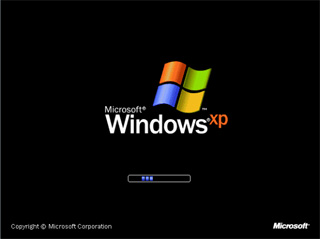
Jay Greene of Cnet has an excellent story up–the first of a two-parter–on Microsoft’s Courier two-screen tablet, which got everyone excited with an animated demo, but was killed before it ever shipped:
But the device wasn’t intended to be a computer replacement; it was meant to complement PCs. Courier users wouldn’t want or need a feature-rich e-mail application such as Microsoft’s Outlook that lets them switch to conversation views in their inbox or support offline e-mail reading and writing. The key to Courier, Allard’s team argued, was its focus on content creation. Courier was for the creative set, a gadget on which architects might begin to sketch building plans, or writers might begin to draft documents.
The Courier was a wonderful concept product, but I’m not convinced it’s a tragedy that Microsoft axed it, for three reasons:
1) It’s a heck of a lot easier to make a product impressive in a conceptual demo than in real life.
2) Like the Tablet PC, the Courier was heavily invested in the idea that lots of people want to take notes using a stylus and store them in their own handwriting. I’m convinced that very few folks actually want to do that.
3) It behooved Microsoft to identify the one most promising future path for Windows–which turned out to be Windows 8–and then pursue it as aggressively as possible. (And I don’t see why Windows 8 couldn’t be used as the basis of a Courier-like device.)
Still, it would have been fun to see the Courier in that demo in real life. Maybe the most important lesson is this: DON’T LEAK DEMOS OF PRODUCTS YOU AREN’T WILLING TO SELL.

 As the world celebrates–or at least acknowledges–the
As the world celebrates–or at least acknowledges–the  If you’d been alive in 1924 and had enjoyed the comedy stylings of a young Vaudevillian named George Burns, you never would have believed he’d still be packing them in seventy years later. In 1963, you might have dug the music that Mick Jagger and Keith Richards were making, but the idea they’d still be touring almost forty-five years later would have sounded insane. Those of us who watched Dennis Eckersley pitch for the Red Sox in 1978 would have scoffed at the notion that he’d be playing for Beantown once again in 1998.
If you’d been alive in 1924 and had enjoyed the comedy stylings of a young Vaudevillian named George Burns, you never would have believed he’d still be packing them in seventy years later. In 1963, you might have dug the music that Mick Jagger and Keith Richards were making, but the idea they’d still be touring almost forty-five years later would have sounded insane. Those of us who watched Dennis Eckersley pitch for the Red Sox in 1978 would have scoffed at the notion that he’d be playing for Beantown once again in 1998.